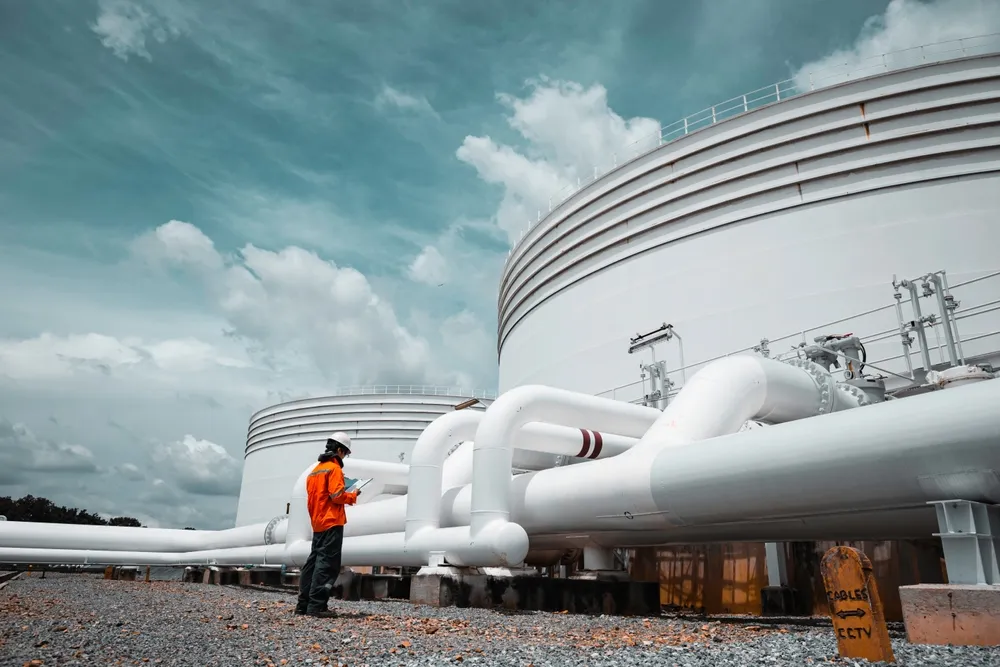Developing Human Competency and Capability in the Oil and Gas Industry Course
Introduction:
The development of human competency and capability within the oil and gas industry is as crucial as other operational aspects in the sector. The industry faces constant pressure from new technologies and environmental changes, necessitating a trained and skilled workforce that is well-acquainted with the demands of modernization.
This course on Developing Human Competency and Capability in the Oil and Gas Industry is designed to uplift the skill set and professional capability of all practitioners in the sector. Participants will learn essential competency-building opportunities that will enhance their careers and positively impact the industry's growth and sustainability.
Career growth programs and training in the oil and gas sector are vital for enhancing the supply of human capital in the industry. Understanding the challenges and roles within the sector will help appreciate the people driving its effectiveness. This course emphasizes the necessity of specialized training and its relevance to human capability theory and development.
Objectives:
By the end of the course on Developing Human Competency and Capability in the Oil and Gas Industry, participants should be able to:
- Acknowledge the necessity of competency and capability development in organizational development specifically in the oil and gas industry.
- Locate and use key competency frameworks and models appropriate for the specific characteristics of the oil and gas industry.
- Assess the position of human capability in their organization and conduct capacity planning based on the definition of human capabilities.
- Create specific strategies for the development of relevant competencies aligned with the organization’s prevailing industry trends and objectives.
- Utilize high-caliber strategies for talent identification, recruitment, assessment, and development programs.
- Accommodate and apply emerging technologies for horizon scanning and enhancing competency strategy to boost performance.
- Administer mechanisms that facilitate continuous growth and development for individuals and organizations.
- Introduce performance development systems that evaluate, score, and promote the development of behaviors and their associated evidence.
- Incorporate effective change management strategies into the design of competency development programs in light of dynamic industry conditions.
- Contribute to the safety, efficiency, and sustainability of human endeavors within the oil and gas industry.
Training Methodology:
- Faith-based engagement
- Web-based exercises
- Case studies
- Role-playing
- Experiential sessions
- Net-survey
- Other forms of performance work
- Performance feedback
- Continuous performance assessments
Course Outline:
Unit 1: Competency Development in the Oil and Gas Sector
- The Need for Competency Development
- The Effect on Organizational Performance
- Current Trends and Problems in the Industry
- The Significance of Competencies in Staff Retention
- Competency-based Selection Process
- Competence Mapping in Relation to Jobs
Unit 2: Competency Frameworks and Models
- Fundamentals of Competency Framework
- The Use of Competency Models in Oil and Gas
- Running Targets through Similar Competencies
- Competency-carrier Structure Modeling
- Combination of Hard Skills and Soft Skills
- Global Competency Frameworks
Unit 3: Competency Assessment and Gap Analysis
- Gauging Competence Levels
- Methods of Identifying the Gap
- Defining Development Action Plans
- Performance Appraisal by Competency
- Appraisal and Planning of Targeted Actions
- Competency Verification on a Permanent Basis
Unit 4: Designing Competency Development Strategies
- Establishing Competency Models
- Tailoring Learning and Talent Development Solutions
- Using Best Available Industry Approaches
- Cross-Disciplinary Skill Development
- Competence-oriented Strategy Covering Placement Systems
- Curricula and Modules Focusing on Competencies
Unit 5: Integration of Technology in the Development of Competencies
- The Use of Technology in Skill Improvement
- Education through the Internet and Training through Computers
- Game-Based Learning and Simulations for Skill Acquisition
- Practical Skill Training through Virtual Reality
- Learning Management Systems with Emphasis on Competency
- Microlearning and Skill Enhancement Applications
Unit 6: Competency Progression through Performance Management
- Crafting Effective Standards for Measurement
- Assessment of the Development of Desired Competencies
- Feedback Building
- Acknowledgment and Rewards for Developed Skills
- Addressing Skill Deficiencies with Performance Improvement Options
- Performance Appraisal and Promotion Criteria related to Competency
Unit 7: Cultivating a Continuous Learning Environment
- Cultivating a Learning Culture within an Organization
- Alleviating Passivity
- Encouraging Learner Autonomy – Self-directed Learning
- Communities of Practice
- Competency-delivery Workshops & Seminars
- Competency Development through Mentorship & Coaching
Unit 8: Change Management in Competency Development
- Managing Change in the Organization
- Resistance to Change
- Achieving Continuous Competency Enhancement
- Campaign Strategies for Competency Projects
- Competency Projects ‘Change Agents’ and ‘Competency Champions’
- Embedding Competence as Part of an Organization’s Culture
Unit 9: Case Studies and Industry Insights
- Competency Development Success Stories
- Industry Safeguards for Success
- Transferring Understanding to Practice
Unit 10: Current Challenges and New Solutions
- New Competency Development Methods
- Sector-Specific Case Studies in Upstream, Midstream, and Downstream Sectors
Unit 11: Future Trends in Human Competency Development
- Nature of the Industry and Changes
- Changes Due to New Technologies
- Future Competencies
- Transitioning Towards Sustainable Energy Sources
- Closing the Skill Gap for New and Evolving Technologies in Exploration and Production
- AI and Automation in Competence Development and Management


















